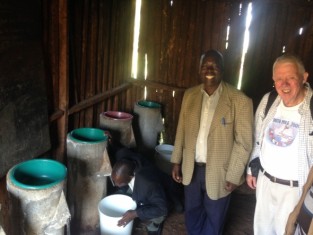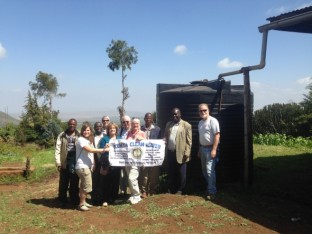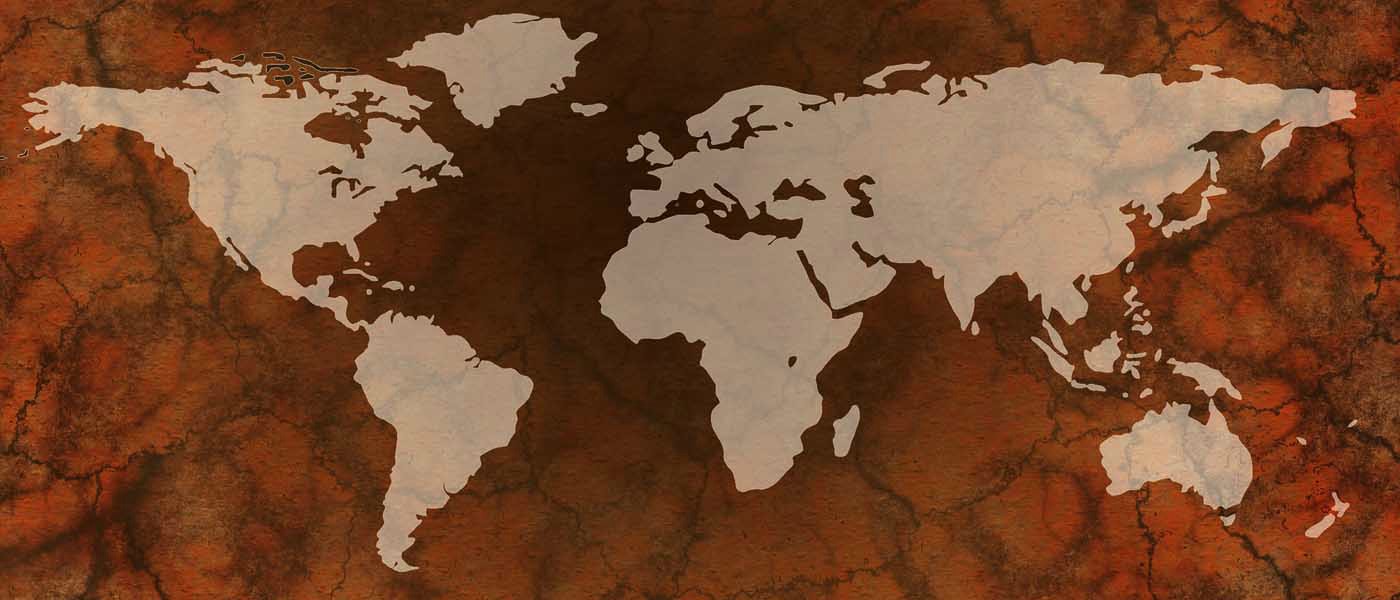Kenya Water Project
 |  |
| Jim Collinson inspects some bio-sand filters with friends at a Kenya primary school.
| The Colorado Mission Team stands with a guttering and storage tank at a primary school in January 2015.
|
First United Methodist Church began mission work with the Kaaga Synod of the Methodist Church of Kenya (MCK) in 2008. The Kaaga Synod includes the town of Meru on the north slope of Mt. Kenya where the church has a strong and influential impact on families and schools. When the Synod Bishop highlighted water and sanitation as crises in schools, we believed we could help.
The problem has been a lack of potable water together with improper hygiene resulting in wide-spread and frequent sickness among pupils and faculty from waterborne disease. What has naturally followed has been low-class attendance and low academic performance.
We believed that by teaming with the MCK, we could provide the schools with cleaner water and the students with better hygienic habits. Our desired outcome has been that future generations of Kenyans could focus more on economic and societal improvement rather than just on subsistence.
Together with our Kenya partners, we are succeeding. As a consequence of this project, dozens of schools have water harvesting and storage systems with bio-sand or similar filters and hand-washing stations. And as importantly, the students receive training on the value of keeping themselves clean and hydrated. Consequently, many thousands of school children no longer must take long hikes for water each day or drink raw water. School attendance is up and scholastic performance scores are higher (Note that, though we are not able to correlate school performance to clean water, anecdotal evidence suggests some relationship).
In the U.S., we have partnered with the Aspen Community Church and the Scottsbluff, NE Rotary Club. This has multiplied our funding, broadened project management, and significantly increased the number of Kenya students and schools we have been able to reach.
Our plans are to continue installing clean water systems and handwashing stations where requested but also to ensure that adequate sanitation facilities (latrines) are available at schools, especially for young women. Already, we helped build a new woman’s latrine at Kithoka Primary School.
But we believe that perhaps the most valuable aspect of this work has been the interpersonal friendships we have made with our partners in Kenya and the USA.
To become a partner yourself, there are two ways:
- Contribute directly through FUMC with a notation on the check “for Kenya”.
- Make a tax-deductible contribution through the United Methodist Committee on Relief (UMCOR) at Advance # 3021424 by visiting http://www.advancinghope.org.
See http://www.aidforkenya.org/contact.html) for more up-to-date information about the work we are doing in Kenya.

